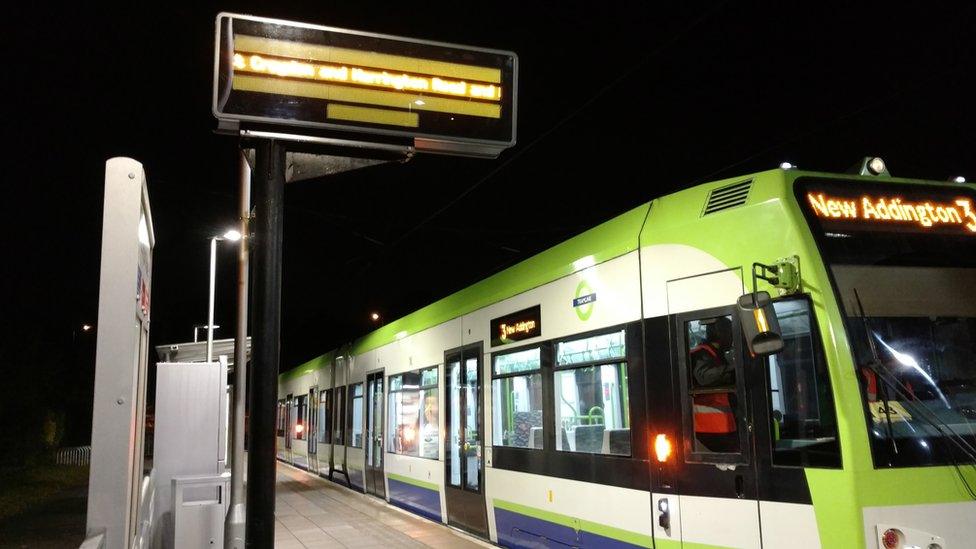Croydon tram crash: Funeral costs offer from Transport for London
- Published
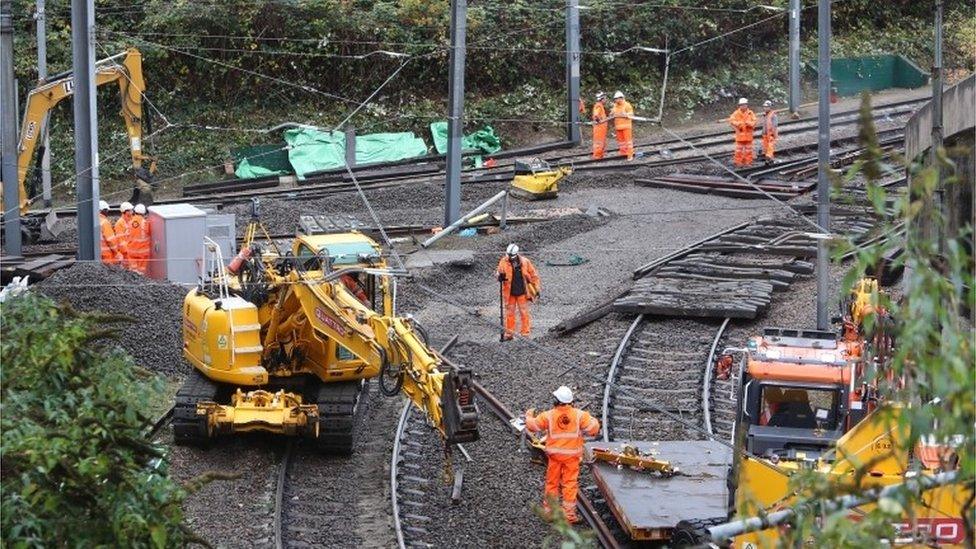
In the immediate aftermath of the crash the RAIB said the tram had been travelling "significantly" faster than allowed
Transport for London (TfL) has offered to pay for the funerals of the seven victims of the Croydon tram crash.
Six men and one woman died, and more than 50 people were injured, when a tram overturned on 9 November.
TfL has pledged to do "everything we can to support the families and all those affected".
An interim report into the crash is due to be published on Wednesday, but it could take "many months" to produce a final report, investigators warned.
Announcing the offer of assistance to victims' families, London's Transport Commissioner Mike Brown said: "The TfL Sarah Hope line, external is available 24 hours a day to provide advice on a whole range of matters and immediate financial and other support.
"This includes covering funeral costs and travel expenses for relatives."
'Significantly' faster
Meanwhile, the Rail Accident Investigation Branch (RAIB) has conducted preliminary analysis and downloaded information from the tram's "black box" data recorder.
Previously it said the vehicle had exceeded the speed limit on the bend.
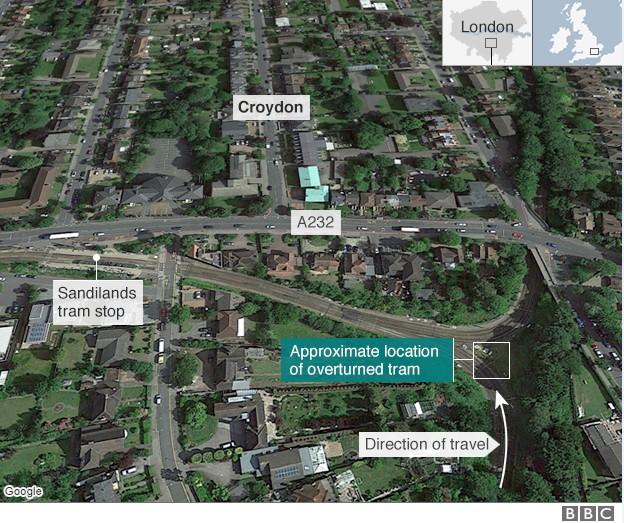
The RAIB said last week the two-carriage tram had been travelling "significantly" faster than the permitted 12mph (19km/h) as it entered a tight bend near the Sandilands stop.
Trade body UK Tram said tram accidents were incredibly rare and has cautioned against hastily imposed precautions as a knee-jerk reaction.
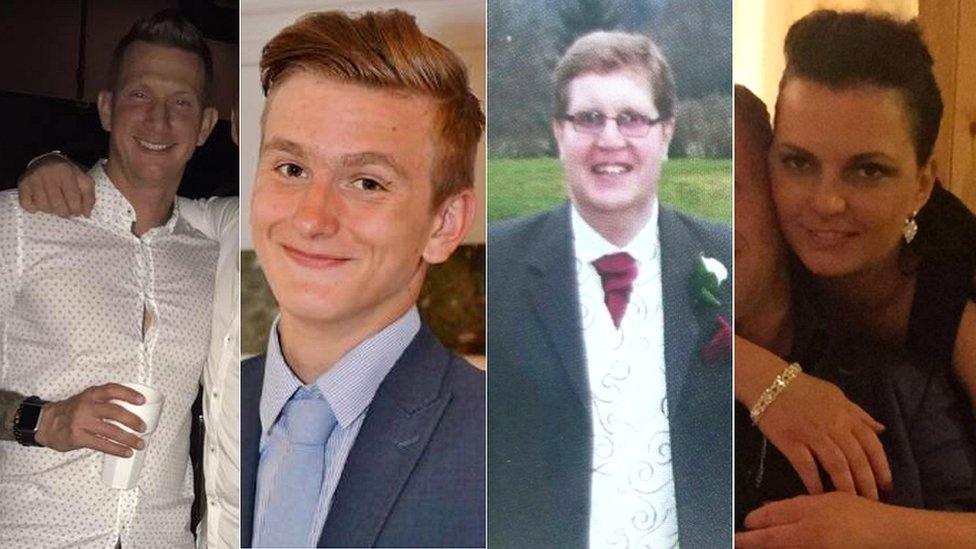
Mark Smith, Dane Chinnery, Phil Seary and Dorota Rynkiewicz (l-r) all died in the crash
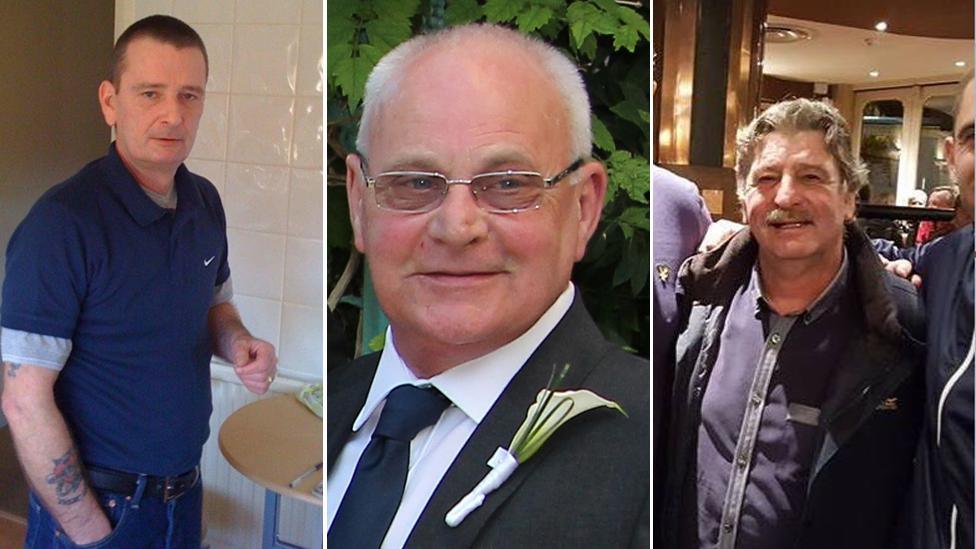
Tributes have been paid to Philip Logan (left), Donald Collett (centre) and Robert Huxley (right), who also died in the crash
Simon French, head of the RAIB, appeared before MPs at the Commons Transport Select Committee on Monday and said a full investigation would involve a large number of interviews, as well as detailed analysis and examination of the evidence.
He said: "If there's information of immediate safety importance that needs to be communicated of course we will do so as is normal in our investigations by issuing urgent safety advices."
BBC London's transport correspondent Tom Edwards said: "We already know the tram was going too fast on the bend, the crucial question we're all trying to find out is why.
"We might get the speed of the tram, we might get some urgent safety recommendations but the full investigation is going to take many, many months."

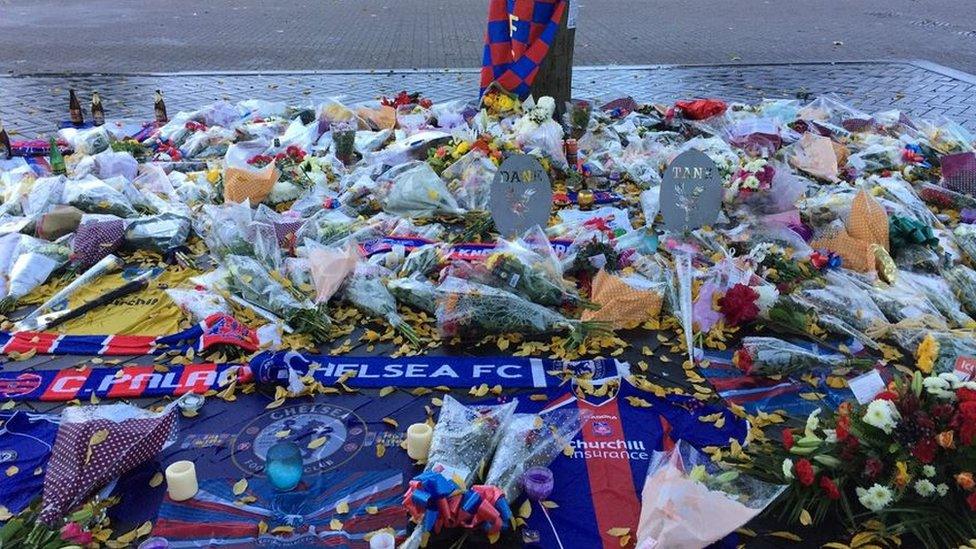
At the scene: BBC London reporter Jason Rosam
New Addington is still in shock, you can sense it in the air. People are trying to go about their normal daily lives but there's constant reminders of what happened seven days ago.
Here at the parade of shops where I'm standing there's a makeshift memorial to the victims - it's got flowers, cards, photos, candles and messages for those lost.
One message hung onto a tree really says what the mood is perfectly: "It's so sad that you started your day from here only to lose your lives 20 minutes later. You will never be forgotten."
Doing this job I regularly stop people in the street who are rushing to work and a lot of people ignore me or brush me past. But here, every person I've spoken to has taken the time to stop and talk to me and that's unusual.

A police investigation has also been launched and the tram's 42-year-old driver, Alfred Dorris, from Beckenham, south-east London, has been arrested on suspicion of manslaughter and released on bail until May.
The Office of Rail and Road is carrying out its own investigation into whether safety rules were being followed.
- Published14 November 2016
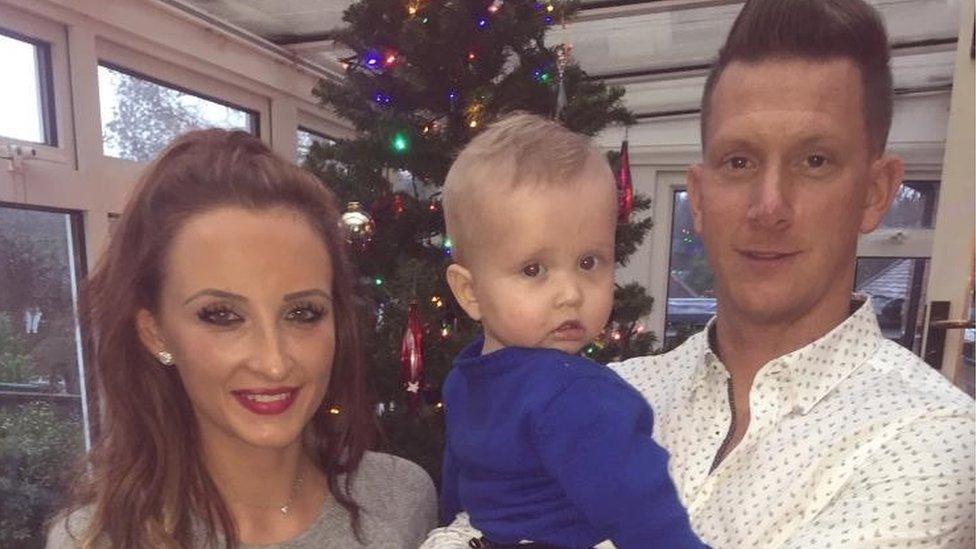
- Published14 November 2016
- Published13 November 2016

- Published13 November 2016
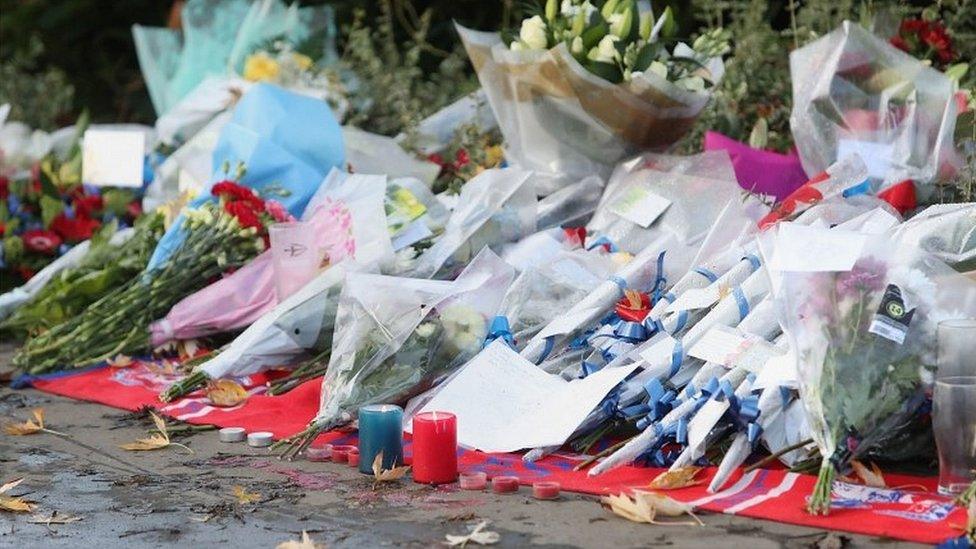
- Published12 November 2016
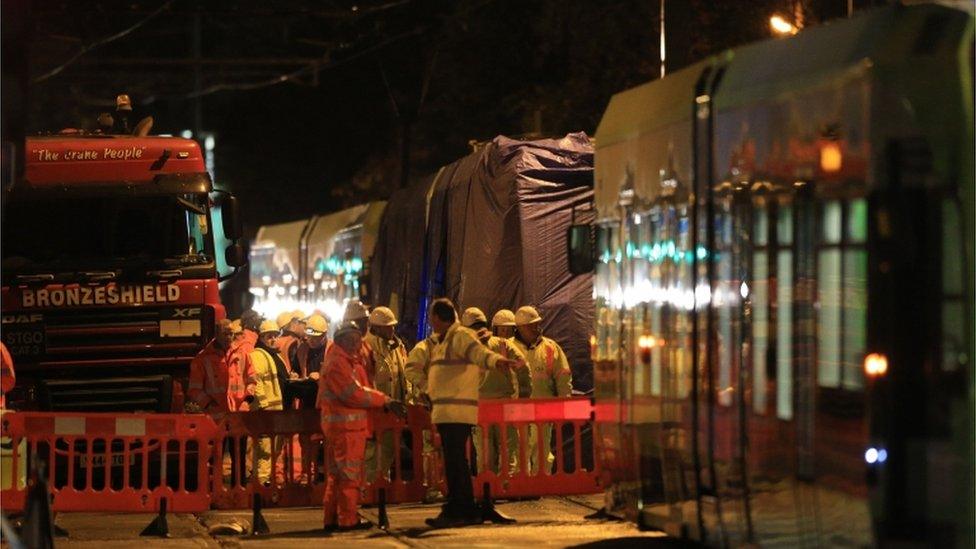
- Published11 November 2016
